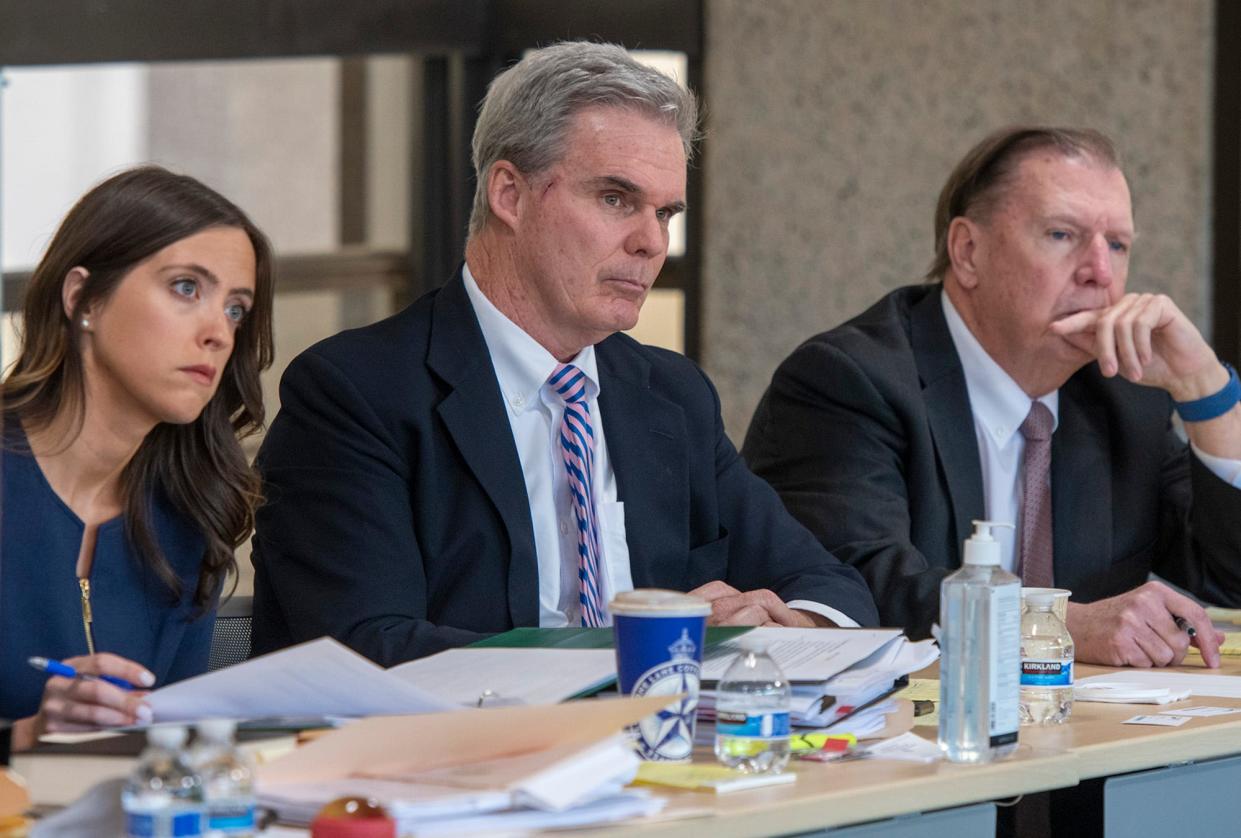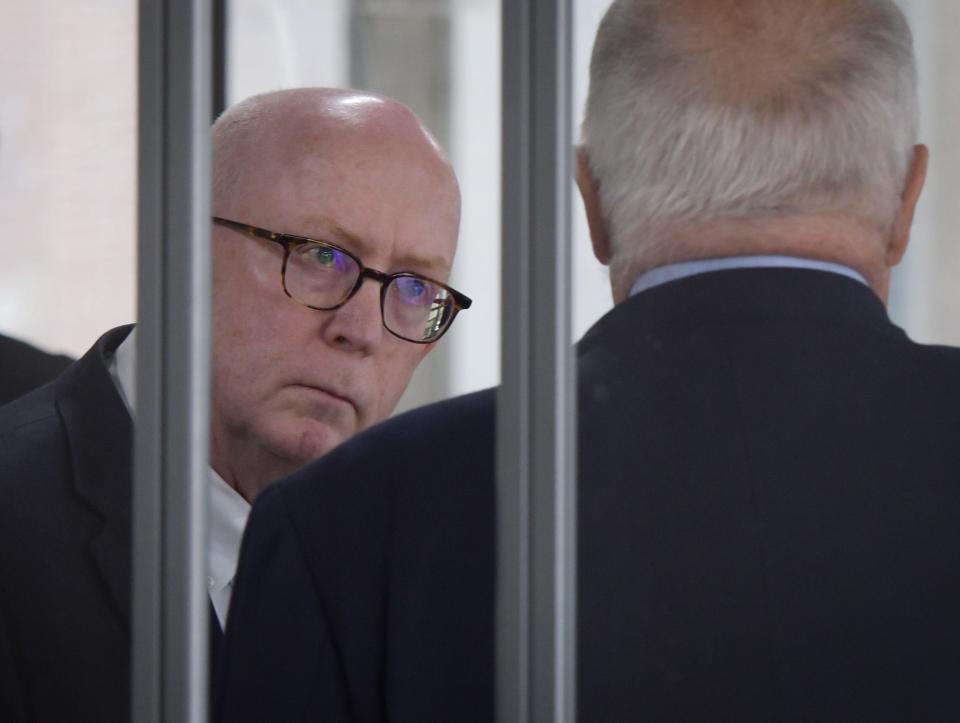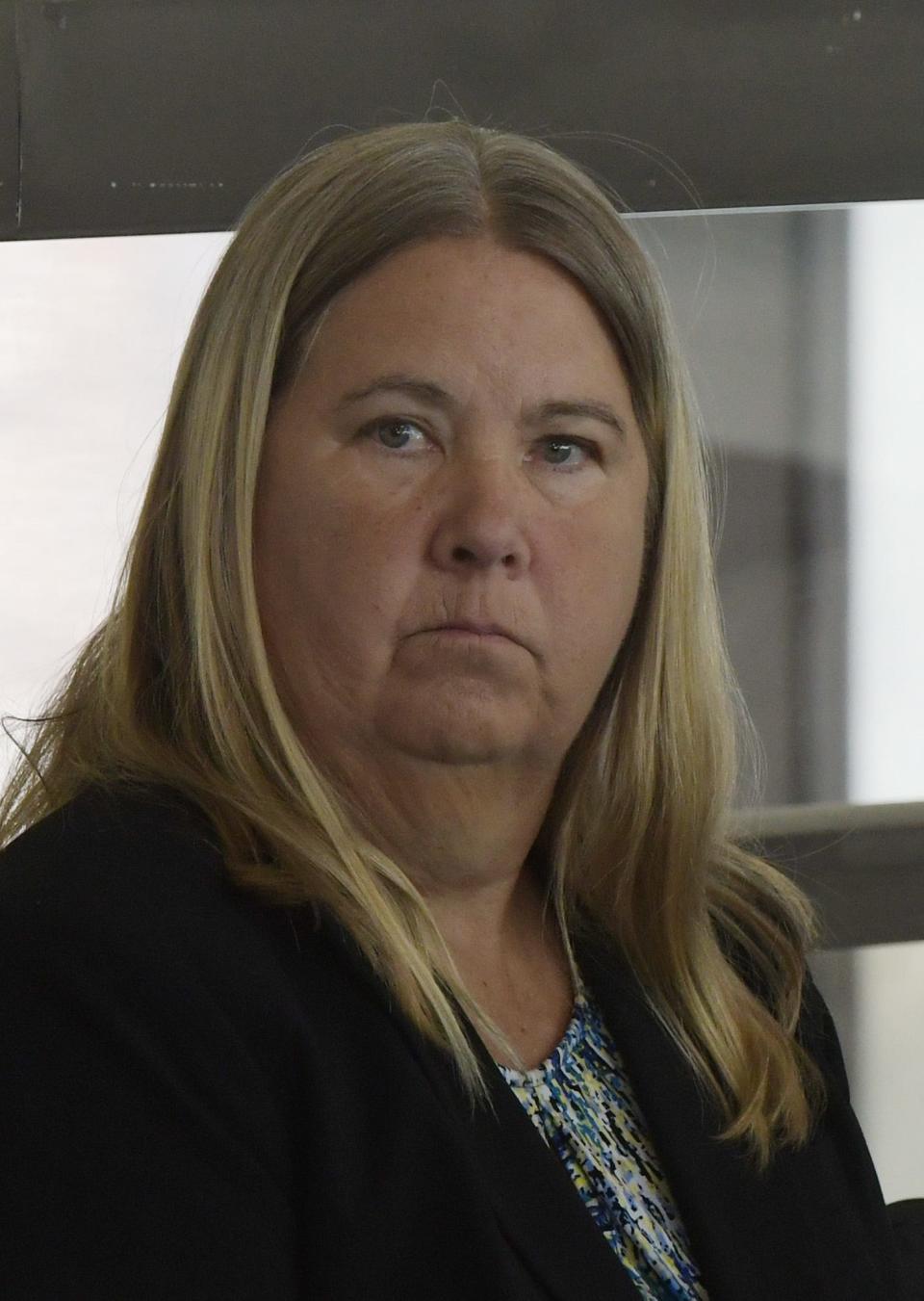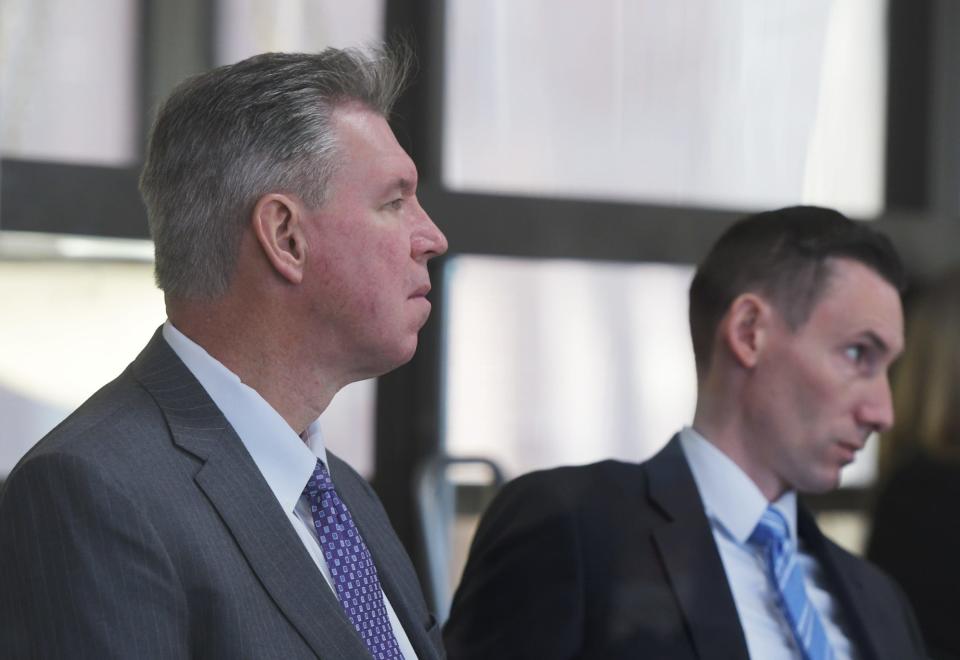State will pay legal bills for Worcester County prosecutor tied to ethics probe

The state has approved a payment for $120,000 in legal bills for a prosecutor cleared in the 2022 Ethics Commission probe surrounding the arrest of a local judge’s daughter, but has declined to pay for the defense of two state troopers also cleared, including the former colonel.
Documents obtained by the Telegram & Gazette pursuant to public records requests show the state comptroller’s office has approved $120,000 in legal fees for Jeffrey Travers, Worcester’s top assistant district attorney, to settle a lawsuit his lawyer filed against Travers’ boss, Worcester District Attorney Joseph D. Early Jr.
Records show Travers’ lawyer, Roy Bourgeois, sued Early in February 2023, nearly two years after the comptroller’s office had sent Early an email opining it was “not appropriate to reimburse legal fees for public employees related to administrative claims before the State Ethics Commission.”
Early and Travers, along with former Col. Richard D. McKeon and Maj. Susan Anderson, were accused of breaking civil ethics laws regarding their handling of the 2017 arrest report of a local judge's daughter. All were cleared in 2022.
Bourgeois argued that Early, by ceasing payment after receiving the comptroller's email, had breached a standard agreement he’d entered into to cover the cost of Travers’ litigation tied to his duties as a prosecutor. The agreement, legal counsel for the comptroller’s office wrote in an affidavit in the lawsuit, had not been described to her prior to her issuance of the office’s opinion.

In response to questions from the T&G, Michael V. Sangalang, a spokesperson for Massachusetts Comptroller William McNamara, said the office’s position that Ethics Commission legal defense is not reimbursable has not changed.
The comptroller signed off on the payment, Sanagalang said, because it was submitted as a payment under a contract dispute, not as an indemnification request.
“The lawsuit itself led this to become submittable as a contract claim,” Sangalang said.
The lawsuit was settled by two Peabody & Arnold LLP lawyers Early hired because the Attorney General’s Office — which would normally defend him — had a conflict of interest as it had originally referred the matter to the State Ethics Commission.
Both lawyers were named special assistant attorney generals for the purposes of the lawsuit, records show. They had, as of January, been paid about $41,000 from Early’s main budget, a spokesperson for his office said.
The $120,000 settlement between the lawyers and Bourgeois was reached around the same time a Worcester Superior Court judge ruled state police didn’t have to pay McKeon and Anderson the legal fees they incurred in the case.
McKeon and Anderson, both of whom retired in the wake of the scandal, had asked state police to cover their costs but were denied, according to a lawsuit they filed in November 2022.

Worcester Superior Court Judge Karin Bell ruled in January that the state was not required to pay the cost of defending troopers for a State Ethics Commission probe, citing similar legal reasoning the comptroller’s office had originally given Early’s office in reply to its 2021 indemnification request.
Both rulings drew upon a 2003 Supreme Judicial Court ruling regarding the Massachusetts Tort Claims Act that found lawmakers hadn’t intended to require municipal employees to be indemnified for the cost of defending against criminal indictments or ethics charges.

“While the (SJC) case concerned indemnification of municipal employees, the similarity between the language of Sections 9 and 13 of the MTCA suggests the same reasoning should be applied to cases involving state employees,” the comptroller’s office wrote to Early in 2021, adding they understood the AG’s office and Office of Inspector General held similar views.
The AG’s office, when run by now-Gov. Maura Healey, paid nearly $1 million in legal fees defending three former prosecutors — one of whom was disbarred — in disciplinary proceedings tied to allegations of wrongdoing regarding the Sonja Farak drug lab scandal.
Massachusetts Lawyers Weekly, in an editorial at the time, opined that while it didn’t appear the AG was required to indemnify the lawyers under law, it didn’t appear to be barred from doing so, either.
The editorial, signed by a number of well-known lawyers, including the current chief legal counsel of the Massachusetts Bar Association, reasoned that not paying the defense would hurt prosecutor morale and could dissuade talented litigators from working for the state.
In a statement to the T&G Thursday, Early said he agreed with the editorial and stressed that the Ethics Commission had cleared Travers and himself in the case.
“It would be quite a burden for anyone to have to pay their own legal fees after being improperly accused for actions undertaken in the course of their employment,” he wrote. “To keep people in public employment, we need to support them if they get sued. We especially have to do this when they do the right thing and do their job.”
Lawyers for McKeon and Anderson told the T&G they are appealing Bell’s ruling.
“There should not be two different standards,” Timothy Burke, a lawyer for Anderson, said. “They’re both entitled to have their representation paid by the commonwealth when they’re acting within the scope of their employment, and their conduct is not wanton, willful or malicious.”
Burke, as he did throughout the case, added that the situation, in his view, is particularly egregious for Anderson, who, he said, was simply following orders given to her by McKeon.
The State Ethics Commission had alleged that McKeon, after speaking with Early, improperly ordered Anderson to have a state trooper who arrested a local judge’s daughter prepare a sanitized version of his arrest report after it had been filed in court.
That revised copy, lawyers for the commission alleged, was then delivered to Travers, who, allegedly at Early’s direction, asked to swap it with the original copy on file in the clerk’s office.
Conflicting testimony about what happened was given at the State Ethics Commission, with the top judge in Central District Court saying he recalled Early asking why the documents couldn’t be swapped.
The then-clerk testified he believed Travers had asked to switch the documents, but also testified he didn't believe Travers had crossed any ethical lines.
The commission, after nine days of hearings, dismissed the allegations against Early, Travers, McKeon and Anderson.
The commission didn’t make detailed findings on the specific allegations in the case after finding that, even if things happened as alleged, the commission's lawyers hadn’t proven it would be of a value substantial enough to violate the civil statute.
Some commissioners criticized the manner in which the case was handled, while the commissioner who oversaw the hearings said he believed Early and the others were “motivated to protect the rights of a criminal defendant who suffered from substance abuse.”
In his statement to the T&G, Early said the actions his office undertook were “about protecting the basic human dignity of someone suffering from the disease of addiction.
“The Worcester County District Attorney's Office always has and will continue to show the same level of compassion while I am district attorney,” he wrote.
It is unclear whether the state has paid any of Early’s legal fees related to his defense of the Ethics Commission complaint.
Asked for a breakdown of fees and their sources related to the defense, Early replied he “cannot provide a breakdown at this time,” noting that “certain payments in the litigation are still pending.”
Bourgeois has yet to be paid, court records show, because the comptroller is waiting for the state budget account that would go to pay him to be replenished by the Legislature.
Early has a separate legal defense fund he set up with the Office of Campaign and Political Finance that, records show, has received more than $300,000 in contributions.
While donations to legal defense funds must be publicly disclosed, expenditures from the funds are not required to be posted.
This article originally appeared on Telegram & Gazette: State will pay legal bills for prosecutor in state police ethics case

